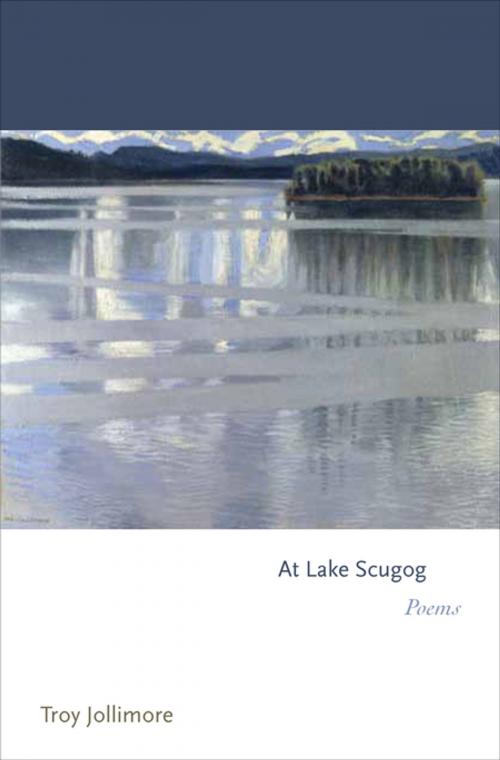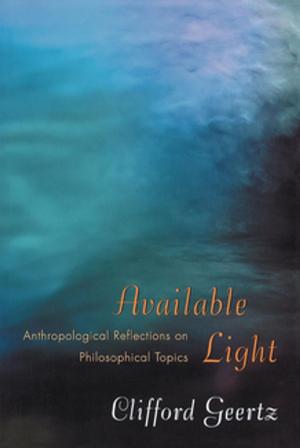| Author: | Troy Jollimore | ISBN: | 9781400838233 |
| Publisher: | Princeton University Press | Publication: | March 14, 2011 |
| Imprint: | Princeton University Press | Language: | English |
| Author: | Troy Jollimore |
| ISBN: | 9781400838233 |
| Publisher: | Princeton University Press |
| Publication: | March 14, 2011 |
| Imprint: | Princeton University Press |
| Language: | English |
This is an eagerly awaited collection of new poems from the author of Tom Thomson in Purgatory, which won the National Book Critics Circle Award and was hailed by the New York Times as a "snappy, entertaining book." A triumphant follow-up to that acclaimed debut, At Lake Scugog demonstrates why the San Francisco Chronicle has called Troy Jollimore "a new and exciting voice in American poetry."
Jollimore is a professional philosopher, and in witty and profound ways his formally playful poems dramatize philosophical subjects--especially the individual's relation to the larger world, and the permeable, constantly shifting border between "inner" and "outer." For instance, the speaker of "The Solipsist," suspecting that the entire world "lives inside of your skull," wonders "why / God would make ear and eye / to face outward, not in." And Tom Thomson--a character who also appeared in Jollimore’s first book--finds himself journeying like an astronaut through the far reaches of the space that fills his head, an experience that prompts him to ask that a doorbell be installed "on the inside," so that he can warn the world before "intruding on’t."
______
From At Lake Scugog:
LOBSTERS
Troy Jollimore
?
tend to cluster in prime numbers, sub-
oceanic bundles of bug consciousness
submerged in waking slumber, plunged in pits
of murk-black water. They have coalesced
out of the pitch and grime and salt suspended
within that atmospheric gloom. Their skin
is colorless below. But when exposed
to air, they start to radiate bright green,
then, soon, a siren red that wails: I’m dead.
The meat inside, though, is as white as teeth,
or the hard-boiled egg that comes to mind
when one cracks that crisp shell and digs beneath.
Caress the toothy claw-edge of its pincer
and you will know the single, simple thought
that populates its mind. The lobster trap is elegance
itself: one moving part: the thing that’s caught.
This is an eagerly awaited collection of new poems from the author of Tom Thomson in Purgatory, which won the National Book Critics Circle Award and was hailed by the New York Times as a "snappy, entertaining book." A triumphant follow-up to that acclaimed debut, At Lake Scugog demonstrates why the San Francisco Chronicle has called Troy Jollimore "a new and exciting voice in American poetry."
Jollimore is a professional philosopher, and in witty and profound ways his formally playful poems dramatize philosophical subjects--especially the individual's relation to the larger world, and the permeable, constantly shifting border between "inner" and "outer." For instance, the speaker of "The Solipsist," suspecting that the entire world "lives inside of your skull," wonders "why / God would make ear and eye / to face outward, not in." And Tom Thomson--a character who also appeared in Jollimore’s first book--finds himself journeying like an astronaut through the far reaches of the space that fills his head, an experience that prompts him to ask that a doorbell be installed "on the inside," so that he can warn the world before "intruding on’t."
______
From At Lake Scugog:
LOBSTERS
Troy Jollimore
?
tend to cluster in prime numbers, sub-
oceanic bundles of bug consciousness
submerged in waking slumber, plunged in pits
of murk-black water. They have coalesced
out of the pitch and grime and salt suspended
within that atmospheric gloom. Their skin
is colorless below. But when exposed
to air, they start to radiate bright green,
then, soon, a siren red that wails: I’m dead.
The meat inside, though, is as white as teeth,
or the hard-boiled egg that comes to mind
when one cracks that crisp shell and digs beneath.
Caress the toothy claw-edge of its pincer
and you will know the single, simple thought
that populates its mind. The lobster trap is elegance
itself: one moving part: the thing that’s caught.















